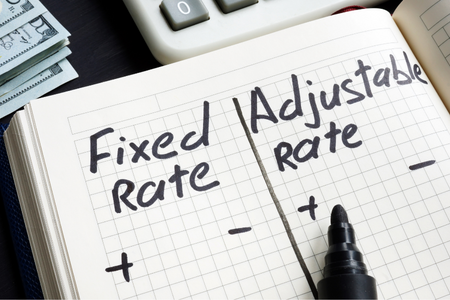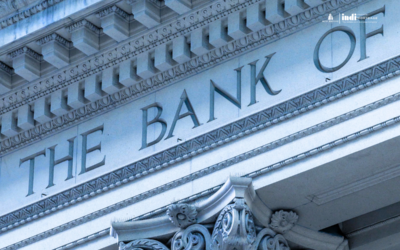Welcome To Our Mortgage Educational Blog About:
Fixed vs. Variable Interest Rate Mortgages

Fixed and Variable interest rate mortgages are the two major types of mortgages. Lenders make their profit from the interests that are added on loans, so regardless of whichever type of mortgage you choose, they’ll benefit, although from one than the other.
Interest rates with fixed-rate mortgages are constant throughout the life loan repayment period. However, variable-rate mortgages have variable interest rates throughout the loan repayment period.
What is a Fixed Interest Rate Mortgage?
Fixed interest rate mortgage is a type of mortgage that allows borrowers to pay back their loans with a consistent interest rate throughout the life of the loan. This means that borrowers know how much is expected of them at regular periods till they complete the repayment of the loan.
A fixed interest rate mortgage is considered the traditional mortgage as it is straightforward. The interest rate is determined by the market when you apply for a mortgage and it doesn’t affect the length of time a borrower has to complete their payment. If a borrower is to repay a loan completely in 25 years, it’ll take that time as the interest rate is constant.
How Does a Fixed Interest Rate Mortgage Work?
When a borrower applies for a mortgage loan, they expect that the lender will add some interests to the principal they’re borrowing. While interest rates vary among types of mortgages, with fixed rate interest, the market determines what interest rate the lender will opt for.
If the lender lends the borrower $200,000 with an interest rate of 2%, to be paid in 25 years, that means the borrower has to pay a constant part of the principal and a constant part of the interest for 25 years.
Assuming your interest rate stays the same over the 25 year amortization, the total amount the borrower is expected to pay is $254,070 over 25 years. Since the borrower and the lender have agreed to use a fixed interest rate mortgage, the borrower will pay $846 every month, for 25 years.
Who Should Opt for Fixed Interest Rate Mortgage?
A fixed interest rate mortgage is advantageous to every borrower as it remains constant even when their income increases. Therefore, you should choose a fixed interest rate mortgage if:
- You have a consistent income flow
- You have seasonal income highs and lows
- You want to pay off your loan in the stipulated time.
What is a Variable Interest Rate Mortgage?
A variable interest rate mortgage is a type of mortgage that makes borrowers pay back different interest rates on their loan at different periods. Variable interest rate mortgages, also called adjustable-rate mortgages, are complicated.
Variable interest rate mortgages use market interest rate per time to determine how much a borrower pays at the end of the month.
How Does Variable Interest Rate Mortgage Work?
When a borrower and a lender agree to use a variable interest rate mortgage, it means the interest rate you pay is tied directly to what ever the prime rate may be. If the rate was to fall, more mortgage payment would go towards the principal. The initial interest rate is usually lower than the market-dictated rate, to the benefit of the borrower. However, the interest rate may increase or decrease, depending on what the market dictates.
Who Should Opt for Variable Interest Rate Mortgage?
Variable interest rate mortgage can be confusing but they can be beneficial to people that are:
- People with a good risk tolerance
- Expecting to have an increase in their income in the coming years.
Which is Better: Fixed or Variable Interest Rate Mortgage?
Fixed and Variable interest rate mortgages are beneficial in their own ways. However, variable interest rates can be confusing to borrowers. With fixed-rate mortgages, borrowers know what they’re expected to pay monthly; however, borrowers that use adjustable-rate mortgages need to confirm with the lender before making payment, as interest rates may change.
Conclusion
Choose the type of mortgage that best suits your finances. Preferably, discuss your finances in detail with the lender for the best mortgage type that suits you.
Are you ready to purchase a home? Reach out to me directly or start your application here: www.sandraforscutt.ca/mortgage-application/
Don’t hesitate to contact us with any questions you may have.
Recent Educational Blogs
First Responder Mortgage Program
Jan 2026 | First Responder Mortgage ProgramAt Metro Mortgage Group, we have deep respect for the everyday heroes of our city — the members of the Edmonton Police Service, EMS, and Fire Rescue Services. Your commitment keeps our community safe, often at great personal...
Pros and Cons of a Home Equity Line of Credit (HELOC)
Dec 2025 | Pros and Cons of a Home Equity Line of Credit (HELOC)If you’re a Canadian homeowner, you’ve probably heard friends or family talk about using a home equity line of credit, or HELOC. People often use it to renovate, consolidate debt, or help kids with school...
What the Latest Bank of Canada Rate Cut Means for Canadian Borrowers and Homeowners
Nov 2025 | What Rate Cut Means for Canadian Borrowers and Homeowners On October 29, 2025, the Bank of Canada made headlines by cutting its benchmark policy rate by 25 basis points. This move brought the policy rate down to 2.25%. For Canadians with mortgages, loans,...



